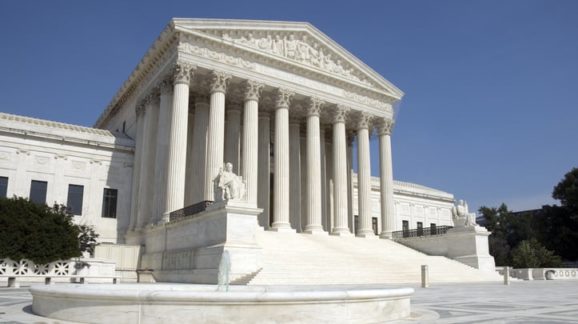What Would Scalia Do? Conservative Justices Debate Each Other on Workplace Discrimination

 The Supreme Court’s conservative justices split three ways in yesterday’s decision to extend the 1964 Civil Rights Act to cover discrimination by sexual orientation. The three views revealed a serious debate among the conservative justices themselves on how to address these kinds of culture war issues.
The Supreme Court’s conservative justices split three ways in yesterday’s decision to extend the 1964 Civil Rights Act to cover discrimination by sexual orientation. The three views revealed a serious debate among the conservative justices themselves on how to address these kinds of culture war issues.
Monday’s case, Bostock v Clayton County, Georgia, turned on the question of whether the Civil Rights Act’s prohibition of discrimination based on “sex” meant merely discrimination based on gender or also discrimination based on sexual orientation.
Justices Neil Gorsuch and Chief Justice John Roberts joined the liberal wing of the court to affirm that the law does cover discrimination by sexual orientation. Gorsuch, in fact, wrote the majority opinion. Justices Sam Alito and Clarence Thomas dissented. Finally, Justice Brett Kavanaugh wrote a separate dissent stating that he agreed with Alito and Thomas on the merits but sympathized with the majority’s conclusion. All five claimed their opinions adhered to a textualist reading of the law.
Textualism—also known as “originalism”—is, to oversimplify, the doctrine that the Constitution is not a living document but means only what the text of the law itself explicitly says. This counters the liberal idea that the Constitution is a “living document” that can be interpreted broadly, even in ways that the text doesn’t address. Textualism was championed by the late Justice Antonin Scalia and remains the guiding principle for the Court’s conservative wing.
Gorsuch and Roberts argued that discrimination based on sexual orientation could not be separated from discrimination based on gender because gender is a key factor in a person’s sexual orientation. “An employer that announces it will not employ anyone who is homosexual for example intends to penalize male employees for being attracted to men and female employees from being attracted to women.” Therefore, even if Congress only meant to ban discrimination based on gender when it passed the Civil Rights Act, the law it actually passed covered orientation as well. To interpret it otherwise, the majority said, would “deny the people the right to continue relying on the original meaning of the law.”
Alito and Thomas countered that the words “sexual orientation” appear nowhere in the Civil Rights Act and pointed to the fact that Congress has attempted numerous times to add that language. “[N]o one should be fooled. The court’s opinion is like a pirate ship. It sails under a textualist flag but what it actually represents is a theory of statutory interpretation that Justice Scalia excoriated,” they wrote.
Kavanaugh agreed with Alito and Thomas that sexual orientation isn’t in the Civil Rights Act and said the Court should have left that to Congress. He said the best way for the Court to advance textualism was to “walk the walk, even in the hard cases when we might prefer a different policy outcome.” Kavanaugh then made clear this was one of those hard cases for him and called the majority opinion an “important victory” for gay and lesbian Americans.
So, two justices argued that textualism can still mean there’s some leeway in interpreting the law, while two others argued, no, the law is only what ink on the page actually says, nothing more. In between them, a lone justice said we should have left the ball back in Congress’ court but this isn’t so bad after all.
The business community will probably welcome the decision. Most businesses already acted as though the Civil Rights Act covered sexual orientation even if the law was vague on the point. Vagueness can still invite litigation and that’s something most business want to avoid. What they often say they want is clarity regarding the law and the Supreme Court provided that.